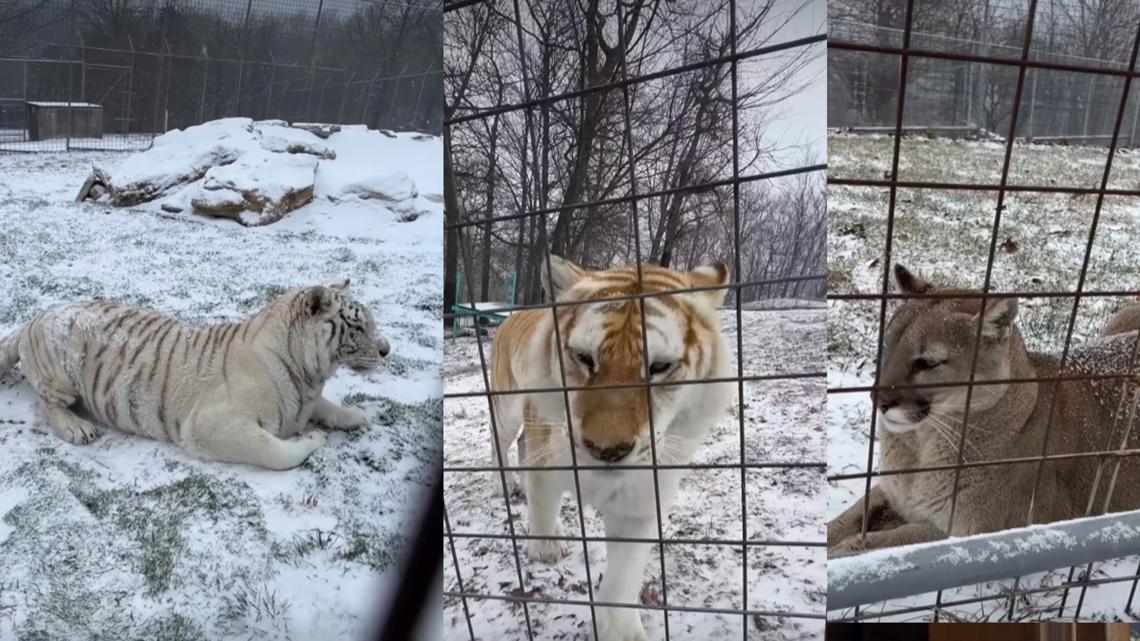Turpentine Creek battles soaring energy bills to keep big cats warm
“We’re like any farmer out there; we’ve gotta take care of right at 100 animals, lions, tigers, cougars, leopards, bears,” said Tanya Smith, President of TCWR.
EUREKA SPRINGS, Ark. — After snow and ice blanketed the area on Tuesday, Feb. 18, Turpentine Creek Wildlife Refuge (TCWR), dedicated to caring for abused and neglected big cats, says their electric bills are “heating up.” The refuge said this is due to the increased energy used to keep their animals warm.
Just last month, the refuge said its electric bill exceeded $8,000. This amount does not include the propane cost for heating the indoor buildings for its African cats, among other necessary costs.
“Keeping our animals safe, warm, and comfortable during this season comes at a significant cost—but it’s a commitment we make without hesitation,” said TCWR.
The refuge has launched a fundraiser to raise money to not only keep up with the costs but to support necessary upgrades.
Sponsors Richard and Beverly Gooch have offered to match every donation until the fundraiser reaches $200,000.
The refuge cares for over 100 habitats, some of which are older. “There is a pressing need to upgrade our heating systems,” said TCWR. Additionally, the team navigates deep snow and ice to make sure all animals have fresh water, access to heating dens and medications that are sometimes needed twice a day.
“Some of the smaller cats are shivering, and of course, we always worry about our older cats,” said Emily McCormack, animal curator at TCWR. “All of our African cats have heated dens and we even have heated pads for the savannahs. Every cat is provided the environment it needs to survive these conditions.”
“We’re like any farmer out there; we’ve gotta take care of right at 100 animals, lions, tigers, cougars, leopards, bears,” said Tanya Smith, President and founder of TCWR.
According to the refuge, the money raised will go towards:
- Gas
- Propane
- Electric bills
- Extra bedding
- Upgrading heating in older dens
- Enhance insulation to conserve more heat
- Upgrade infrastructure to meet top animal welfare standards
“We rely on the generosity of our supporters to help us continue our mission, especially in extreme weather like this,” McCormack said. ” Every donation goes directly toward the care of these animals, ensuring they remain safe and warm no matter the conditions.”
Smith said another way to support is to visit the refuge when they are open. She said the animals love the cold and are most active earlier in the day. They are open daily from 9 a.m. to 4 p.m. For ticket information, click here.
To make a donation, click here.



